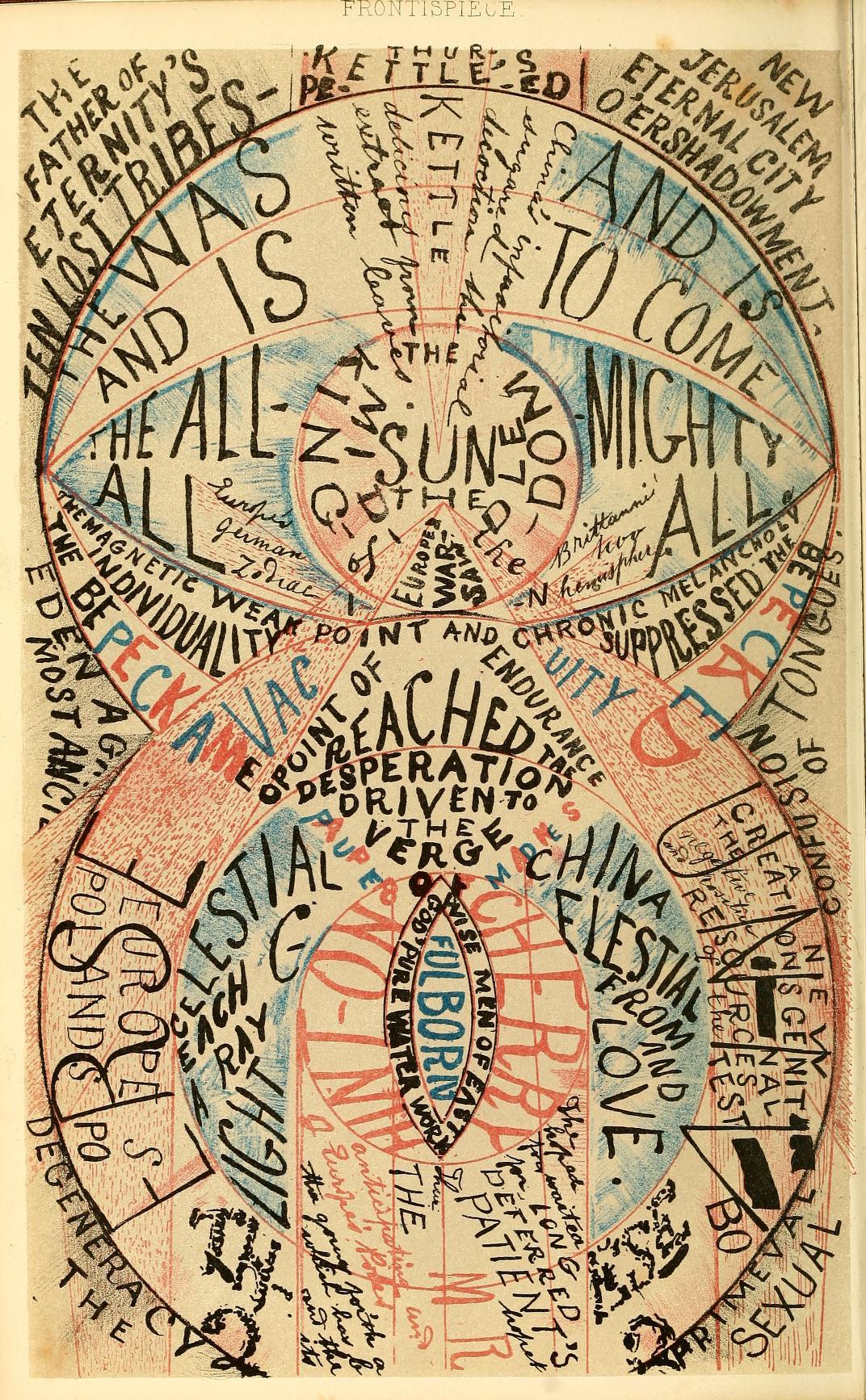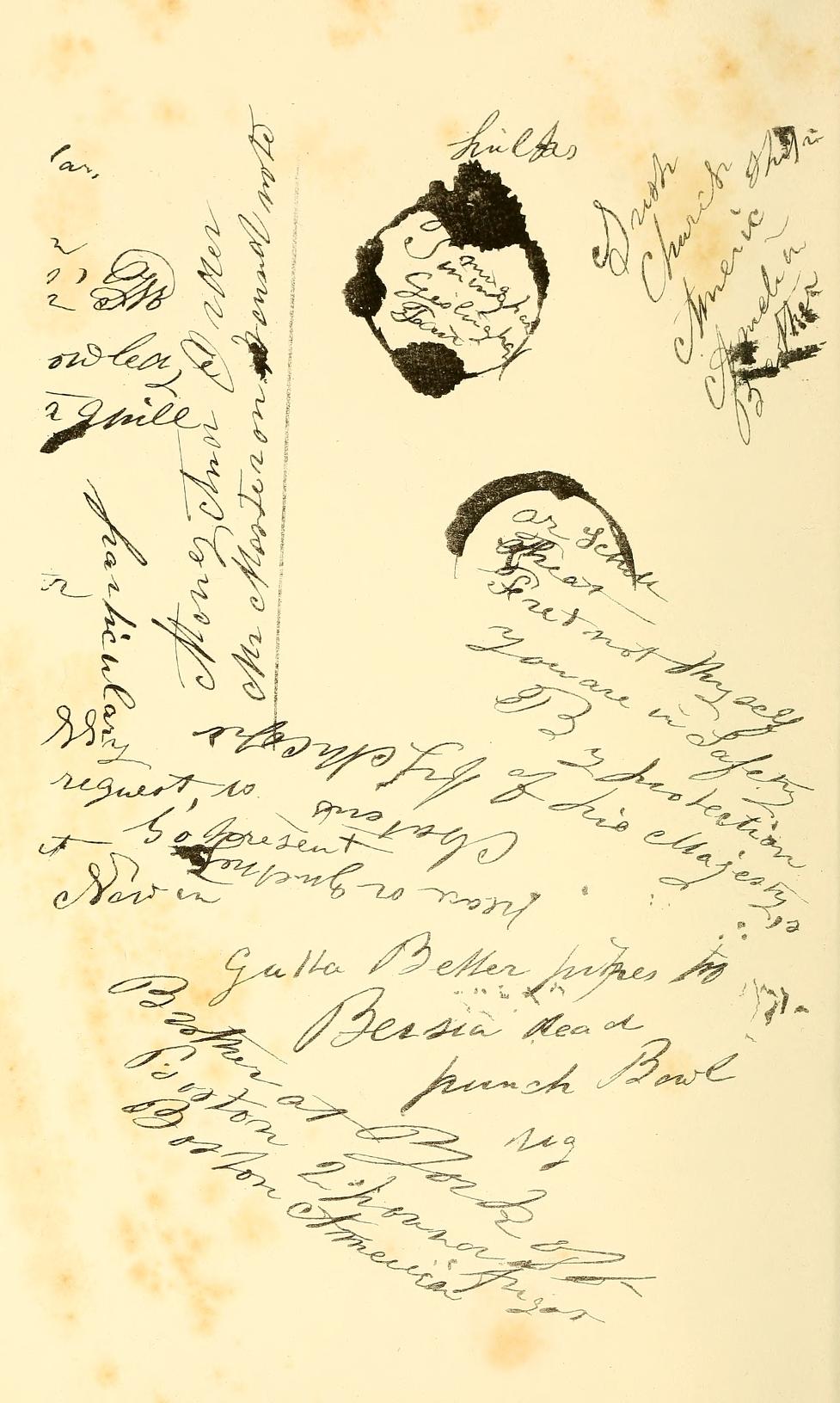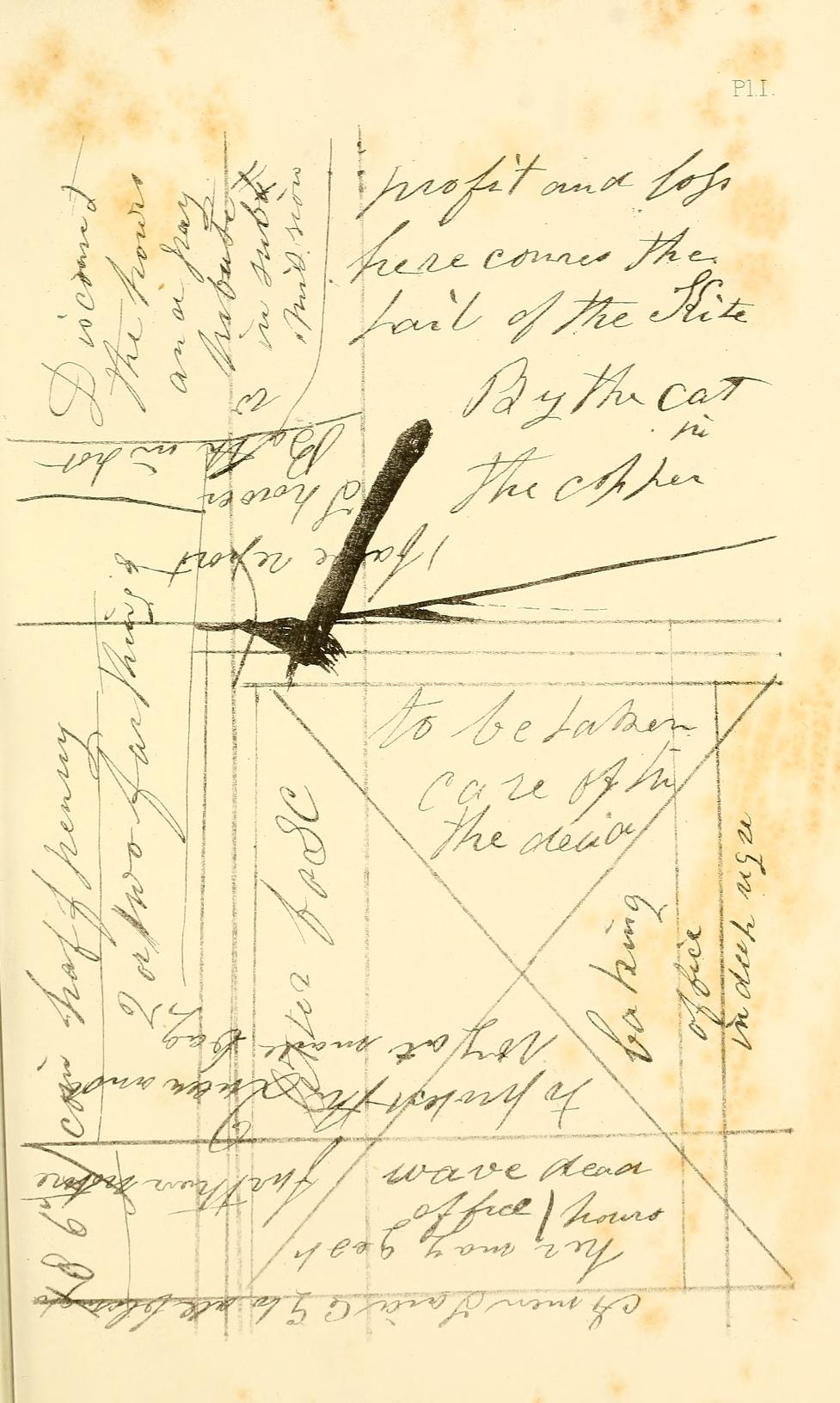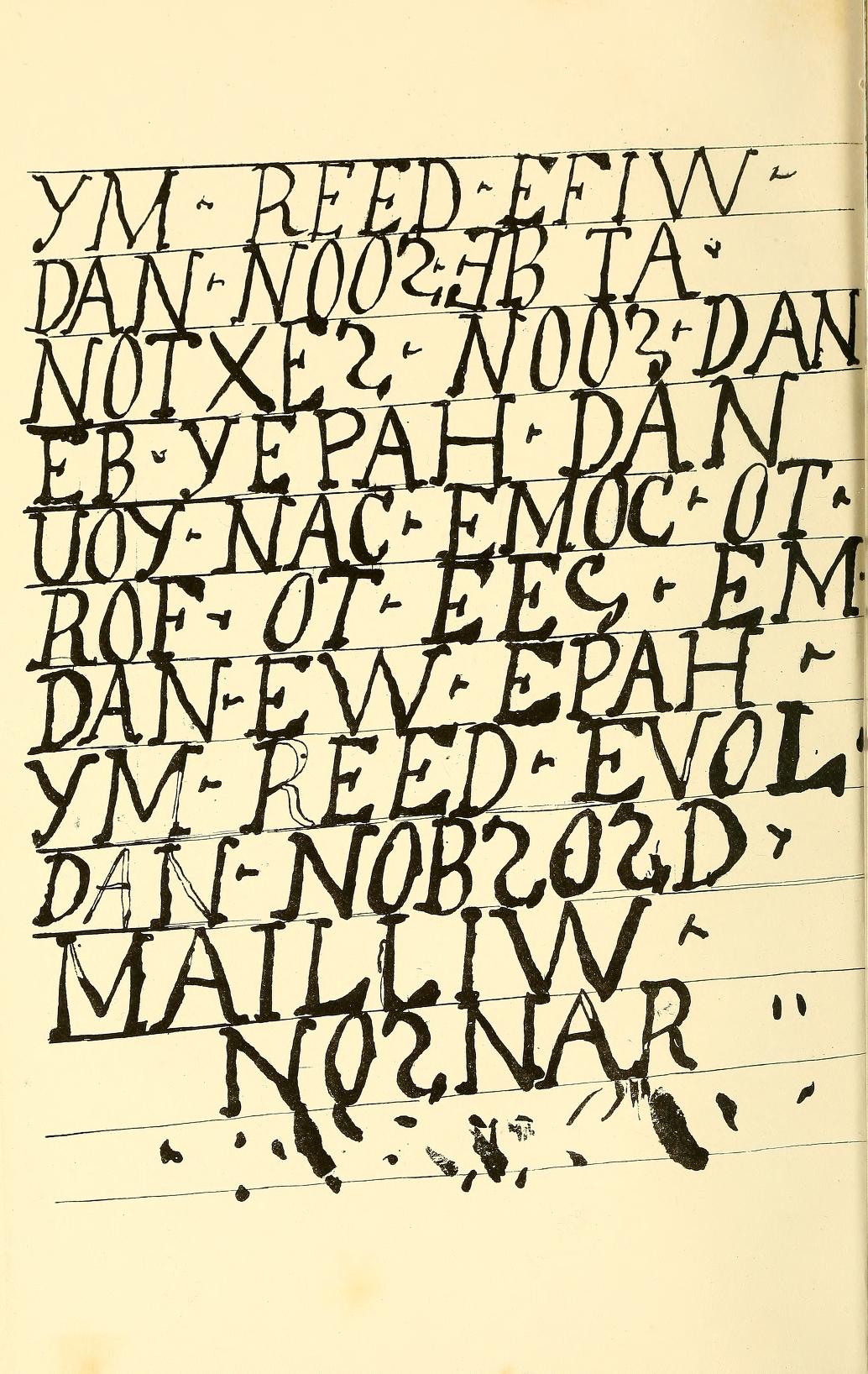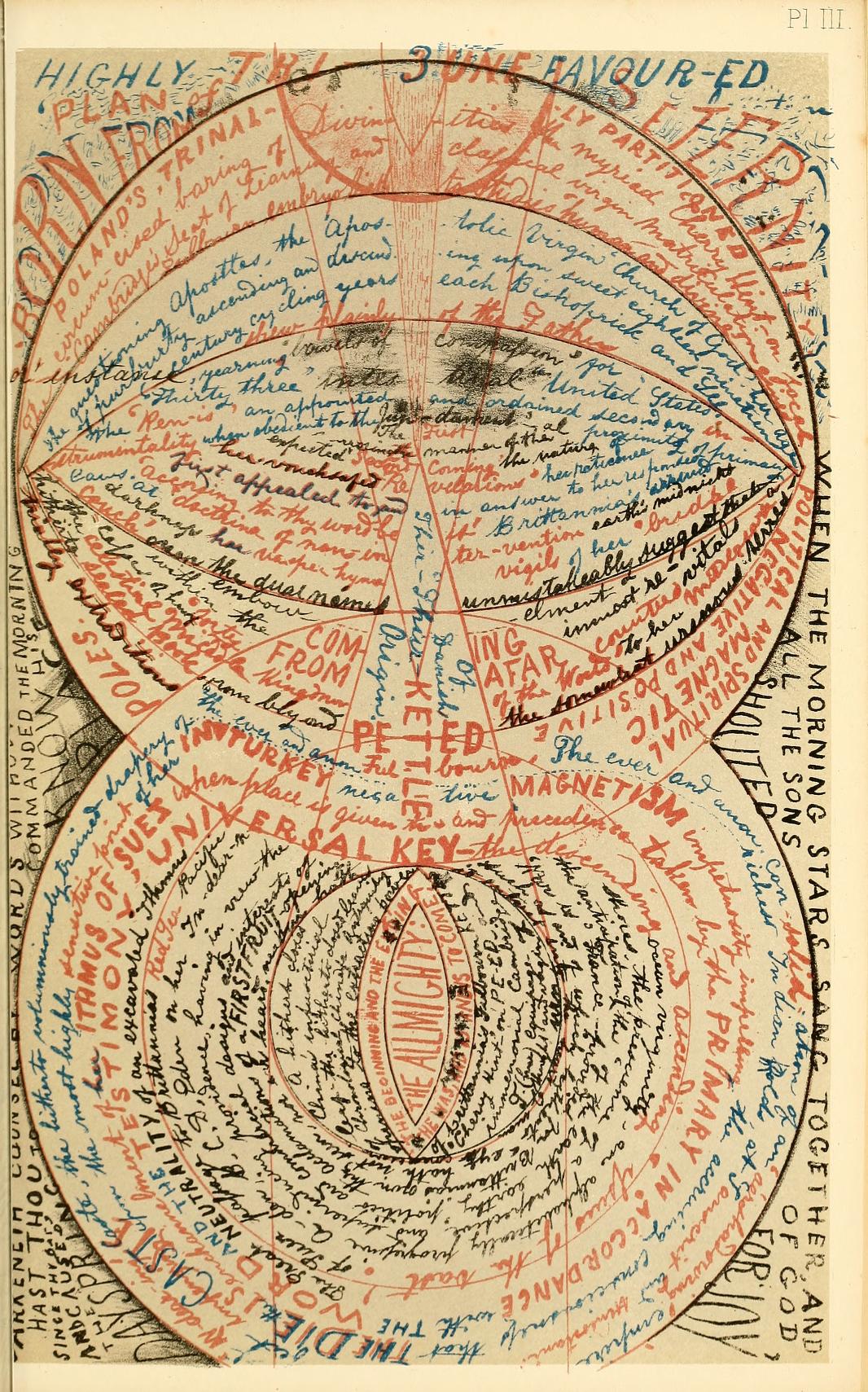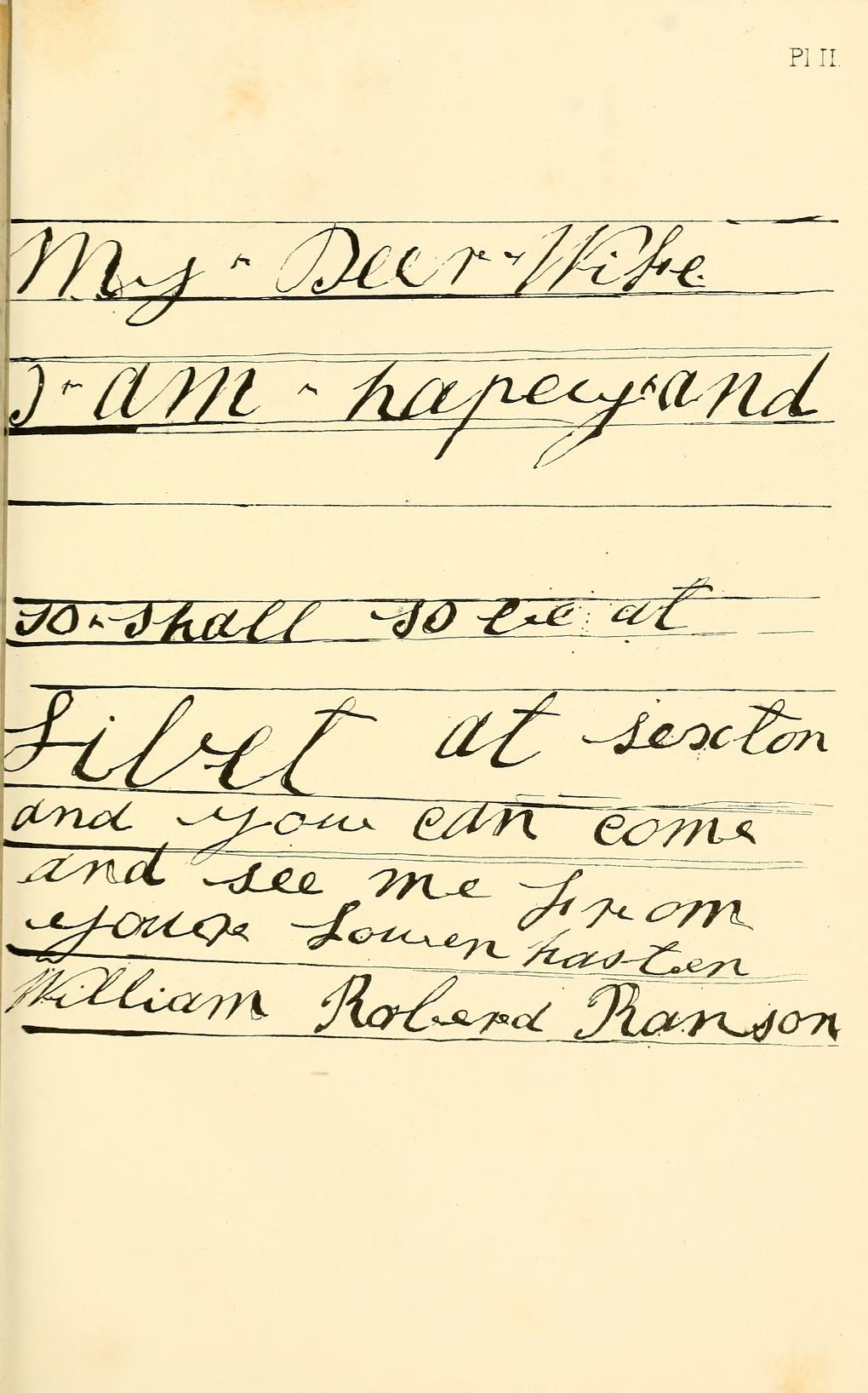On the Writing of the Insane – “An experience of wasted energies and baffled thoughts” (1870) by G. Mackenzie Bacon, a medical superintendent at the County Asylum, Fulhourji, near Cambridge, England.
The book deals with a man committed to the Cambridgeshire Asylum “after being nearly three years in a melancholy mood”. We never get to lean the man’s name. We do known that he remained there for two years, spending “much of his time in writing – sometimes verses, at others long letters of the most rambling character, and in drawing extraordinary diagrams, of which the coloured illustrations… They are not quite so incomprehensible as they at first appear, for on close inspection a good many ideas may be made out.”
Bacon adds:
After he left the Asylum he went to work at his trade, and, by steady application, succeeded in arriving at a certain degree of prosperity, but some two or three years later he began to write very strangely again, and had some of his odd productions printed; yet all this time he kept at work, earned plenty of money, conducted his business very sensibly, and would converse reasonably.
Bacon notes in the introduction his interest in the man’s handwriting:
…there is only one point on which I lay claim to any originality, viz. — the diagnostic value of the handwriting in general paralysis. I cannot find that anyone else has be-fore called attention to the alteration the handwriting undergoes in this disease, and it strikes me as so distinctive as to demand consideration in the observation of such cases. I first noticed this subject in a few remarks in the Lancet of July 4th, 1869…
In the first place I had the writing photographed on glass, and exhibited it with an ordinary magic lantern in a dark room to the medical students of the University. By this plan the irregularities in the writing, being magnified, show more clearly still. I have no wish to attribute undue importance to this matter; but it seems to me of some value in the early stages of a disease so difficult to recognise at that period. With these explanations I leave the matter to the judgment of others.
When a medic attempted to dissuade the patient from writing, the man wrote the following letter:
Dear Doctor,
To write or not to write, that is the question. Whether tis nobler in the mind to follow the visit of great ‘Fulbourn’ with ‘chronic melancholy’ expressions of regret (withheld when he was here) that, as the Fates would have it, we were so little prepared to receive him, and to evince my humble desire to do honour to his visit. My Fulbourn star, but an instant seen, like a meteor’s flash, a blank when gone.
The dust of ages covering my little sanctum parlour room, the available drapery to greet the Doctor, stowed away through the midst of the regenerating (water and scrubbing – cleanliness next to godliness, political and spiritual) cleansing of a little world. The Great Physician walked, bedimmed by the ‘dark ages’ the long passage of Western Enterprise, leading to the curvatures of rising Eastern morn. The rounded configuration of Lunar (tics) garden’s lives an o’ershadowment on Britannia’s vortex…
Things did not end well, as Bacon writes:
In the course of another year he had some domestic troubles, which upset him a good deal, and he ended by drowning himself one day in a public spot. The peculiarity was, that he could work well, and not attract public attention, while he was in his leisure moments writing the most incoherent nonsense.
Would you like to support Flashbak?
Please consider making a donation to our site. We don't want to rely on ads to bring you the best of visual culture. You can also support us by signing up to our Mailing List. And you can also follow us on Facebook, Instagram and Twitter. For great art and culture delivered to your door, visit our shop.
